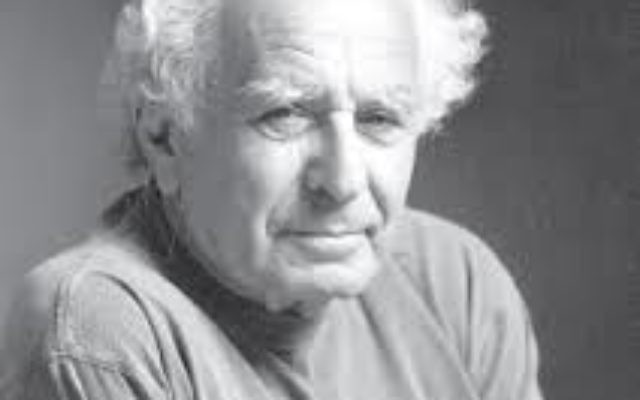Worship of Guns Is Worship of Idols
By Eugen Schoenfeld
When it came time for Moses to die, the legends tell us, G-d opened a cave to be his kever, his final resting place. Moses came by himself to his eternal resting place, where he lay down, and G-d extracted his soul with a kiss and closed the cave.
Till this day, no one knows where Moses is buried. The reason for keeping the place an unknowable and eternal secret, Rashi tells us, is that no one should make his kever a shrine and come to worship Moses instead of G-d.
Judaism in principle is opposed to fetishism and idolatry, and this opposition is expressed in the above tale.
Most often people think of idols as man-created statues that are worshipped as though they were G-d. This is a very narrow perspective of idolatry.
The real meaning of idol worship is stated in the Book of Psalms, and it is the worship of maaseh bnai adam, objects and ideas that are of our own creation. When we create an object or an idea and endow it with transcendental qualities, we become idol worshippers.
Our ancient sages have indeed raised this question: How can we create anything and then treat that object, the creations of our own hand or ideas of our own perception, as objects and ideas that we designated as our rulers? (See Psalm 115.)
We are cautioned by our sages that we must guard ourselves lest we end up perceiving the law, which of course is a human creation, as a transcendental declaration and endow it with power over us.
This concept is well expressed in a tale regarding the law about the kashrut of a certain oven. At the end of the argumentation, it was declared the law is not in heaven but is of this world.
All laws, as are most of our creations, are instituted to serve human needs and solve human problems. But when it comes to the law, we inadvertently seek to crown it and place it above ourselves and make it rule over us. Not only do we endow it with power over us, but we also permit the powerful in our society to co-opt it and use it against us, the powerless, for their own interest.
The writers of our belief system caution us to make sure that the laws are just — that is, that they are not subverted by those in power for their own interest and permitted to become the means by which the powerful justify their rule and become masters of the many. In such conditions the laws become idols, and we end up worshipping false gods.
And yet many of us in this country refuse to become independent of our own creation. As in the case of the Constitution, we declare that it is unchangeable even when its tenets have become old and useless.
When that occurs, we become enslaved by our own creation, leading to a state of futility. That is, if we continue to deny that laws can and sometimes must be changed, they become hindrances in creating solutions for today’s problems.
This is evident with regard to the inability to find solutions to uncontrolled mass violence. There are those among us who refuse rationality and reject the idea that laws must be utilitarian, must serve our needs and are not Sinai-like eternal declarations.
The framers of this human construct we call the U.S. Constitution recognized that as our technological world changes, so must the moral ideals, and they made such changes possible through constitutional amendments.
Let me reiterate: The Constitution has been created to serve human needs, and such needs are in a constant flux based on technological changes.
The Constitution was created to eliminate dictatorial monarchy and the rule by fiat. The framers of the document did not wish to endow it with eternal power through which human beings would again be enslaved; they sought to create a living document, just as the Torah should be seen by all as a living, growing and changing teaching that will bring the rule of moral law.
Let us look at the Second Amendment. It begins with the following premise: “A well regulated Militia, being necessary to the security of a free State.” From this premise follows the conclusion that the bearing of arms should not be abridged.
To fulfill the first need, we must permit gun ownership so that we can have a militia. At that time, in the 18th century, local militias were necessary for defense.
If we accept the premise on which gun ownership is justified, we can also reach other conclusions derived from the same premise: All the people who own guns must be a part of a militia, and it is up to the militia to regulate its members’ use of guns.
It was the same in the time of Moses, when our militia consisted of 600,000 men who swore loyalty to a common defense.
Today the militia is not dependent on individual gun ownership, and therefore the Second Amendment is one of the anachronisms that come with technological changes. Today, unlike in the 18th century, when a state militia is called to service, the members are issued the appropriate weaponry.
The security of this country no longer is dependent on private gun ownership, and the weaponry used by members of the military is in no way dependent on personal gun ownership.
Uncontrolled gun ownership does not solve collective security; it has become the root of insecurity.
The screaming of people about the loss of the privileges accorded in the Second Amendment is merely the cry of selfish individuals who are being supported by the self-interests of the gun business.
We still have a great need for security, but gun ownership has not and cannot solve today’s need to defend a right that is being constantly violated: the right to life.





comments